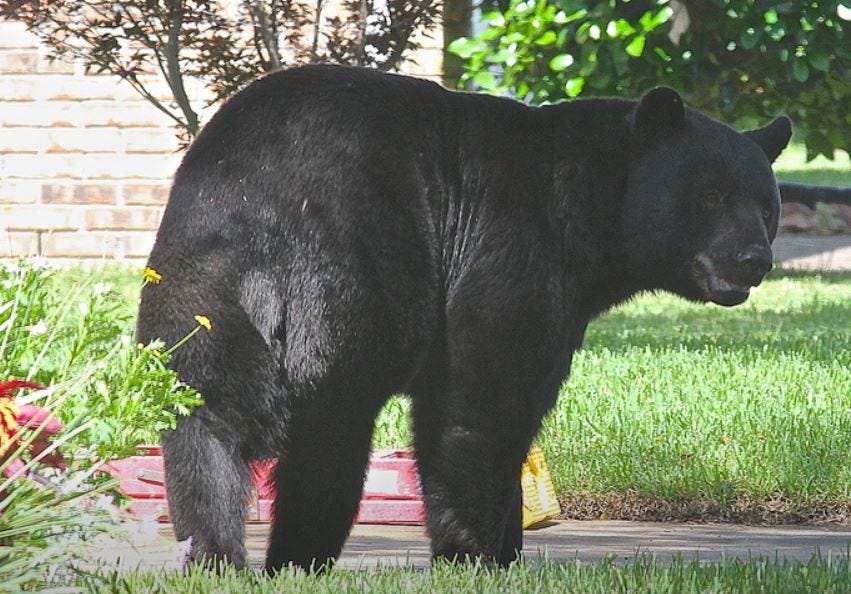
Commissioners with the Florida Fish and Wildlife Conservation Commission recently approved a bear hunting season as part of several changes to rules relating to Florida bears.
In a press release from the FWC, the commissioners passed rules for a bear hunting season which will open on October 24 and will last at least until Oct. 25. The season could last as long as seven days, ending on Oct. 30, depending if a bear harvest objective is met.
Bear hunting will take place within the four Bear Management Units, or BMU, or areas with the largest bear population and include all three national forests as well as southern Florida.
The closest BMU is the West Panhandle Bear Management Unit which encompasses Escambia, Holmes, Santa Rosa and Okaloosa and Walton Counties, according to the myFWC.com website.
According to the press release, the bear hunting season was reinstated in order “to help control the growth of expanding bear populations, as one part of FWC’s overall approach to managing bears.”
Using other states as an example, FWC said “hunting is the most effective and responsible method for managing the growth of bear populations.”
Bear hunting permits will cost Florida residents $100 and $300 for non-residents. Permit holders will be limited to purchasing one permit, allowing for the harvest of one bear per permit.
Here are more rules pertaining to bear hunting:
· Hunting bears with dogs or over bait is not allowed.
· Using game feeding stations on private property can be used as long as the feed is what is typically used for deer and wild hogs.
· In order to harvest a bear on private land, both the hunter and bear must be more than 100 yards away from any game feeding station.
· Hunters will be required to take harvest bears to any FWC check station within 12 hours. The information collected by the FWC will be used to inform the FWC about the local bear population.
· Selling parts of a harvested bear, including the hide, is illegal.
In the June 24th meeting, FWC Commissioners also approved several bear-related rules relating to wildlife feeding and changes to the bear conservation rule. One of these changes would authorize a landowner, through a permit program, to remove a bear causing property damage under certain circumstances.
“These changes also allow the public and trained security personnel to scare bears with less-than-lethal methods in appropriate situations without a permit,” the press release said.
During the meeting the commissioners asked staff to continue educating the public on minimizing conflicts, including repercussions of feeding them.
“Education is key. We know that bear feeding is an issue, so we need to continue to be proactive and responsive with our efforts,” FWC Chairman Richard Corbett said in the press release. “Properly securing garbage and other attractants is the single most important action for reducing conflict situations with bears.”
Commissioners also signed a waste management resolution and approved a policy further “explaining the need for comprehensive waste management to address human-bear conflicts and improve public safety,” the press release said.
“The FWC will continue to perform its role to educate the public, provide technical assistance, remove conflict bears, manage bear populations and enforce feeding prohibitions,” Director of the Division of Habitat and Species Conservation Dr. Thomas Eason said in the press release. “The problem of unsecured waste needs to be addressed by bringing together local officials, along with waste service companies, to work together with FWC to resolve this problem in a cost-effective manner.”
ONLINE: For more information on the West Panhandle BMU, visit http://bit.ly/1NkeCS8
This article originally appeared on Santa Rosa Press Gazette: FWC: Newly passed rules include hunting season for bears
